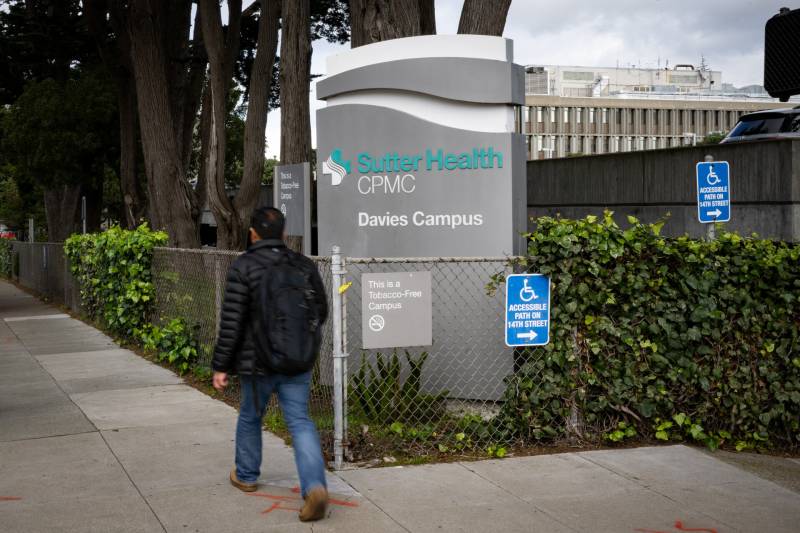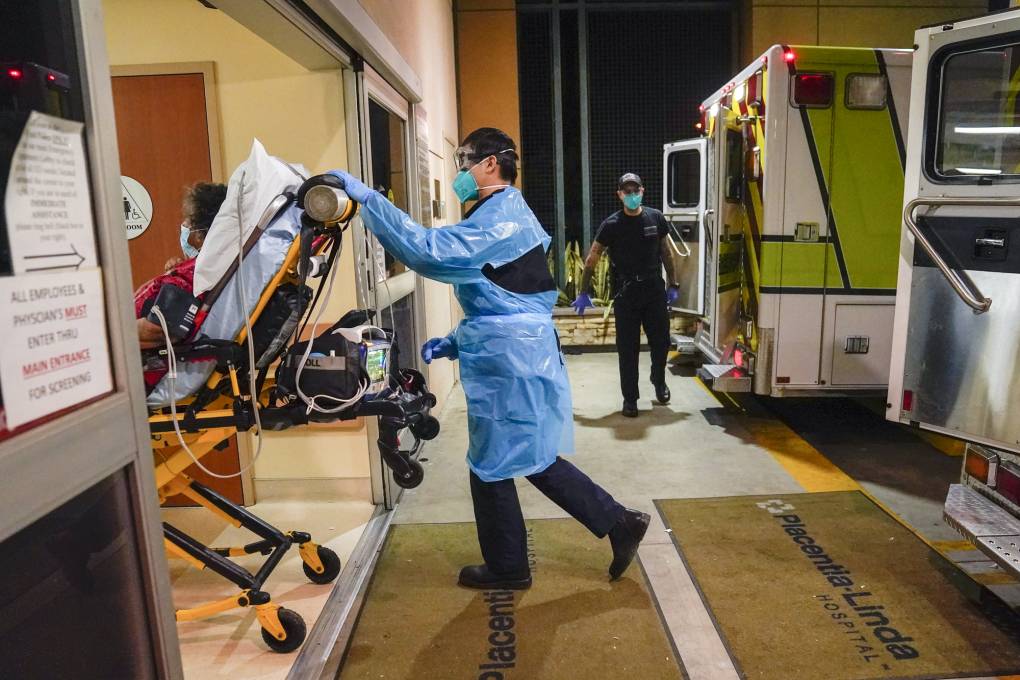Board of Supervisors President Aaron Peskin, who co-sponsored the legislation, told KQED in a statement that the city is moving aggressively to staff up its essential health care workers. “But we won’t be able to expand our workforce if the health care system isn’t safe,” he said. “Health care workers who keep us safe and healthy deserve safety in their workplace, too.”
He added, “That starts with OSHA enforcement of reporting and tracking of assaults within our hospital network. Transparency and accountability are key.”
Golomb, for her part, told KQED that she felt heartened to know about the supervisors’ resolution.
“We’re simply asking for respect and dignity from [Sutter Health], and we haven’t really seen that,” she said. “We’ve been negotiating for our contract for months now, and they continuously refuse to put language in the contract about 24/7 security on our inpatient psych unit.”
In a statement emailed to KQED, a Sutter Health spokesperson said the hospital is addressing the concerns raised by the residents through ongoing reviews of current security practices, unit rounding and open dialogue regarding additional improvements.
The spokesperson added that the hospital system had reached 31 tentative agreements with the union through bargaining sessions, including an article related to employee health, safety and security.
“We appreciate the Board of Supervisors’ support of safe work environments and fair pay and benefits for healthcare workers,” the statement said. “We share this commitment and are doing our part to reach a fair contract for our residents, as we value their contributions to providing compassionate and quality patient care.”
Golomb and about 15 of her resident colleagues announced in January their plans to unionize and have been negotiating a first contract with the hospital system.
They have asked CPMC to increase its safety measures, pressing for a round-the-clock security presence in the inpatient psych unit and an intensive care unit.
Sutter Health has said it is committed to a fair contract and safe work environments. The hospital said it spent nearly $40 million to improve security for the unit where Golomb was attacked, purchasing cameras, panic buttons and duress alarms and securing doors. A security officer is now stationed there during the day.


